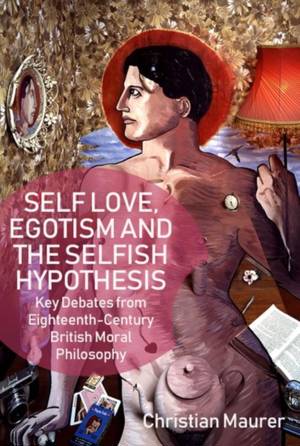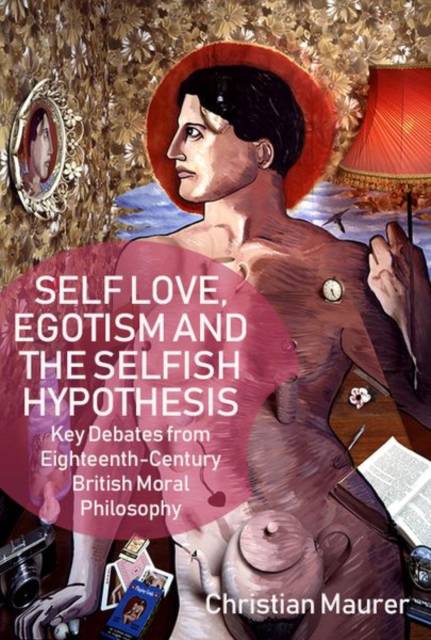
- Afhalen na 1 uur in een winkel met voorraad
- Gratis thuislevering in België vanaf € 30
- Ruim aanbod met 7 miljoen producten
- Afhalen na 1 uur in een winkel met voorraad
- Gratis thuislevering in België vanaf € 30
- Ruim aanbod met 7 miljoen producten
Zoeken
Self-Love, Egoism and the Selfish Hypothesis
Key Debates from Eighteenth-Century British Moral Philosophy
Christian Maurer
Hardcover | Engels
€ 201,45
+ 402 punten
Uitvoering
Omschrijving
The dawn of the Enlightenment saw heated debates on self-love. Do people only act out of self-interest? Or is there a less pessimistic explanation for human behaviour? Maurer delves into the contributions to these debates from both famous and lesser known authors, including Lord Shaftesbury, Bernard Mandeville, Francis Hutcheson, Joseph Butler, Archibald Campbell, David Hume and Adam Smith, and puts them in their philosophical, theological and economic context. Maurer identifies five distinct conceptions of self-love and looks at their role within theories of human psychology and morality while drawing attention to the heuristic limits of our contemporary notion of egoism. He compares the central arguments and the different strategies intended to morally rehabilitate human nature and self-love before and during the Enlightenment.
Specificaties
Betrokkenen
- Auteur(s):
- Uitgeverij:
Inhoud
- Aantal bladzijden:
- 240
- Taal:
- Engels
Eigenschappen
- Productcode (EAN):
- 9781474413374
- Verschijningsdatum:
- 3/04/2019
- Uitvoering:
- Hardcover
- Formaat:
- Genaaid
- Afmetingen:
- 157 mm x 234 mm
- Gewicht:
- 498 g

Alleen bij Standaard Boekhandel
+ 402 punten op je klantenkaart van Standaard Boekhandel
Beoordelingen
We publiceren alleen reviews die voldoen aan de voorwaarden voor reviews. Bekijk onze voorwaarden voor reviews.








